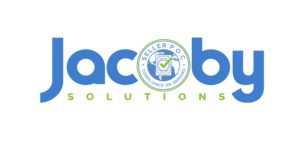The Retail Connection – Children’s Product Certificate
By Bill Jacoby
CPSIA became fully effective on January 1st, 2012. As of this date, all Children’s product Manufacturers and Distributors are required to issue a Children’s Product Certificate (CPC), based on third-party testing from a CPSC-recognized laboratory, to Retailers and Distributors, and upon request to the CPSC for children’s products imported or distributed in commerce on or after Jan 1,2012. As a retailer, it is important to understand what is required of the manufacturer/importer who is providing the children’s products that you sell at the retail level. If you sell products on your website and the manufacturer drop ships the product, they are still technically responsible to send you the certificate.
What does certification of children’s products mean in light of current regulations? Certification means the issuance of a written Children’s Product Certificate (CPC) in which the manufacturer, importer or private labeler certifies that the children’s product complies with all of the safety rules that applies to it. This certification must be based upon the results of third-party testing that is used as the basis for which the manufacturer, importer or private labeler certifies the product. The manufacturer, importer or private labeler by law is responsible for drafting and issuing the CPC.
This CPC must be furnished to the retailer and can be an actual hard copy of the certificate or the manufacturer/importer can provide a reasonable means to access the certificate such as a dedicated website. A CPC does not have to be filed with the government. The CPC must “accompany” the product shipment and be furnished to distributors or retailers, and upon request to the Consumer Product Safety Commission (CPSC) or Customs.see CPSC advice here: http://www.cpsc.gov/info/toysafety/3ptfaq.html#cert2whom
If the product is manufactured overseas and imported into the country, a CPC is required with each import shipment. This requirement applies to both imports and products that are manufactured domestically. Again, the CPC can either be in a hard copy format or an electronic certificate (if the certificate is identified by a unique identifier and can be accessed via a web URL or other electronic means).
The CPC does not have to be signed by the manufacturer/importer as the act of issuing the certificate satisfies this regulation. Failure to furnish a CPC or to issue a false certificate is a violation of the Consumer Product Safety Act (CPSA) and can lead to a civil penalty of between $100,000 and up to $15 million along with possible criminal penalties and asset forfeiture.
As a retailer, how are you set up to receive these certificates? Most likely they are being sent either as a pdf document or as a link to stored document. As you currently do not have a requirement to store these certificates, you should as good business practice be able to track certificates back to the manufacturer for products you sell. As the GCC/CPC requirement is not going away soon, now is the time to think about how you receive, store and or access these documents now before they start piling up and provide your preference of receipt to your manufacturer if asked as this will make it easier on you in the long run to access these certificates if requested.

